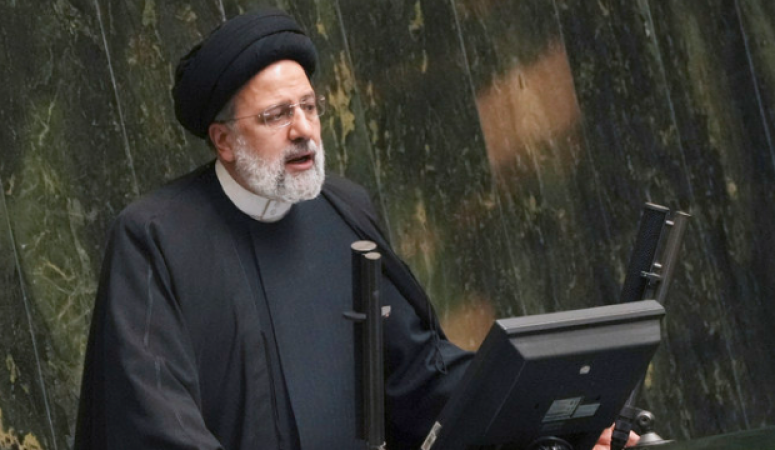
TEHRAN: Iranian President Ebrahim Raisi on Friday blamed enemies of Tehran for a wave of poisonings of hundreds of schoolgirls across the country.
Poison attacks on more than 30 schools in at least four cities since November in Qom, Iran's holiest city, have prompted some parents to pull their children out of school.
According to Iran's health minister, hundreds of girls in various schools are victims, and some politicians have speculated that they may be the target of religious organizations opposed to girls' education.
Also Read: The "heist of the century" has prompted arrest warrants from Iraq
In a speech broadcast on state television Friday, Raisi blamed Iran's enemies for poisoning the crowd.
The enemy wants to create fear and insecurity among parents and students, he claimed, so they are using this security project to create chaos across the country.
Although Iranian leaders often accused the US and Israel of acting against them, they did not specify who those enemies were.
Separately, a senior Iranian official claimed that the poisoning was caused by a fuel tanker that was discovered next to a school in a suburb of Tehran and also spotted in two other cities.
Authorities seized the tanker and detained its driver, according to Reza Karimi Saleh, deputy governor of the Pardis suburb, according to the state-run Tasnim news agency.
In western Iran's Lorestan province, where students were also poisoned, they claimed that the same tanker had also visited Qom and Boroujard. He didn't say anything further.
Also Read: India applauds Saudi Arabia's support as it attends the G20 summit in New Delhi
"At a parking lot where the fuel tanker was parked, guards also suffered from poisoning," Saleh said, referring to the Pardis site. The UN human rights office in Geneva on Friday demanded that the attacks be the subject of an open investigation.
Speaking at a press conference on behalf of the United Nations High Commissioner for Human Rights, Raveena Shamdasani, "We are deeply concerned about allegations that girls are being deliberately targeted under mysterious circumstances.
She argued that the results of a government investigation should be made public and the perpetrators prosecuted. Some Iranian politicians have hypothesized that religious organizations opposed to girls' education may have targeted the schoolgirls.
Girls in hospitals are often featured in pictures and videos posted on social media. Some claimed that they had an upset stomach and increased heart rate. Others reported experiencing heart palpitations or headaches.
Schoolgirls have also taken part in anti-government protests following the death in custody of an Iranian-Kurdish woman last September. In addition to tearing down images of Supreme Leader Ayatollah Ali Khamenei and calling for his execution, they have removed the hijab required in the classroom.
In a video posted online last year, schoolgirls can be seen waving their headscarves in the air at an Iranian Basij force member.
Germany's top diplomat called for a thorough and open investigation into the incidents.
Foreign Minister Annalena Bayerbock expressed shock on Twitter at reports of Iranian schoolgirls being poisoned. Be it Ardabil or Tehran, girls should be able to go to school without fear. According to Barebock, this is nothing less than their human right.
He ordered a thorough investigation of each case.
Margaret Harris, a spokeswoman for the World Health Organization, said the organization was in contact with national health officials and medical experts regarding the incidents and was "using other means to understand more about the incident so that we have better evidence." "
The poisoning has sparked a wave of outrage across the country, with critics criticizing the government's silence in the face of the growing number of schools reportedly targeted.
Relations between Germany and Iran have been particularly strained since the uprising began in response to the death of Mahsa Amini, 22, last September.
Barbock has been a leading voice in the West condemning Tehran's crackdown on protests and executions of anti-government protesters.
Also Read: 10 are detained in Spain for attempting to rob Ukrainian refugees
Tehran expelled two German diplomats on Thursday in retaliation for Berlin's similar crackdown after it handed down the death sentence against Jamshed Sharma, a German-Iranian dual national.